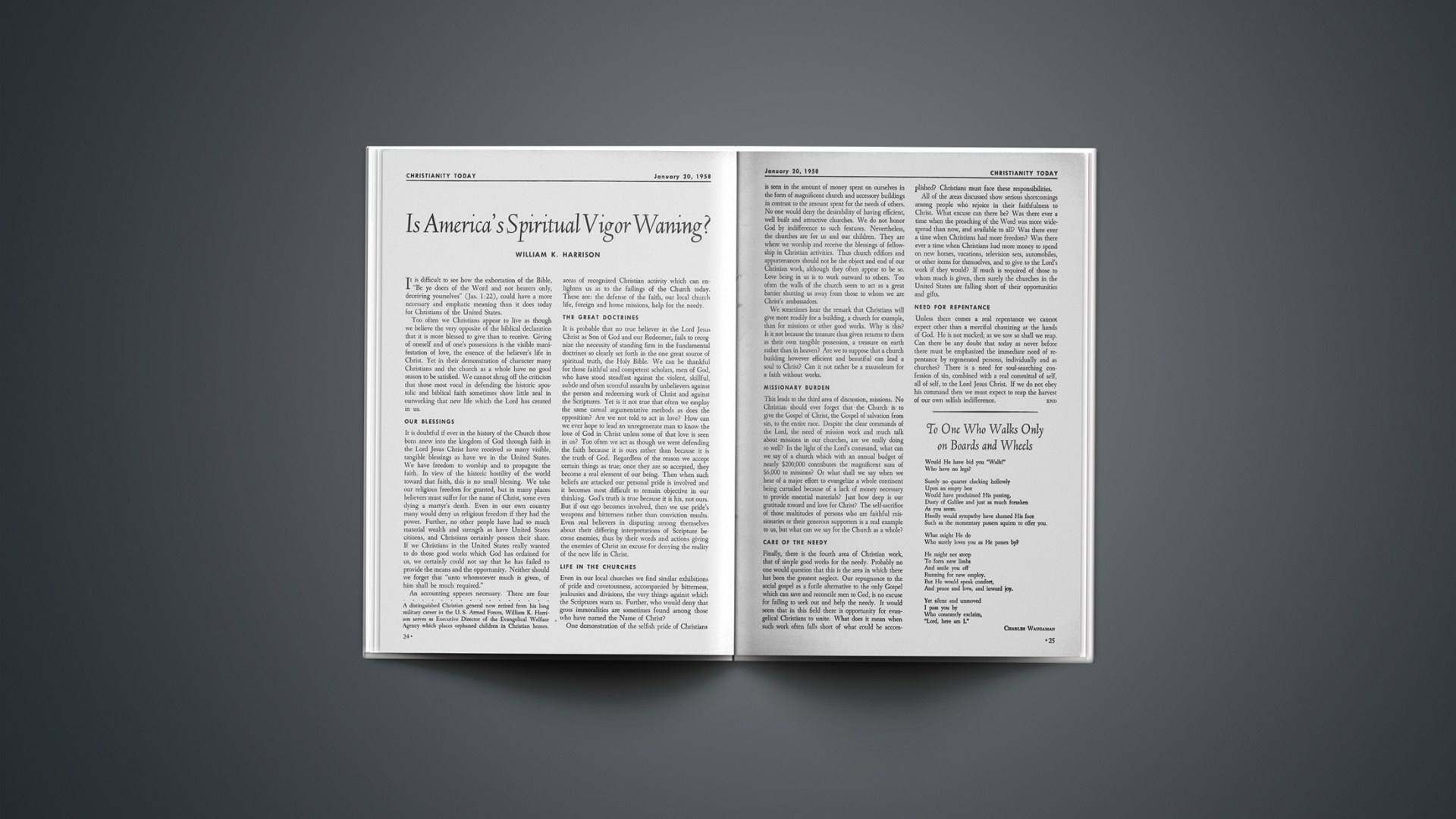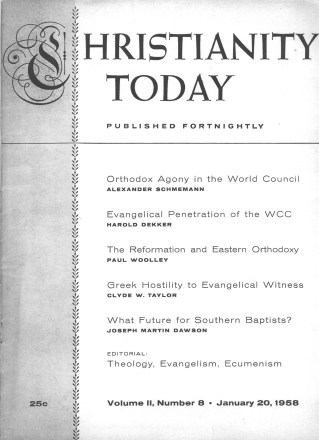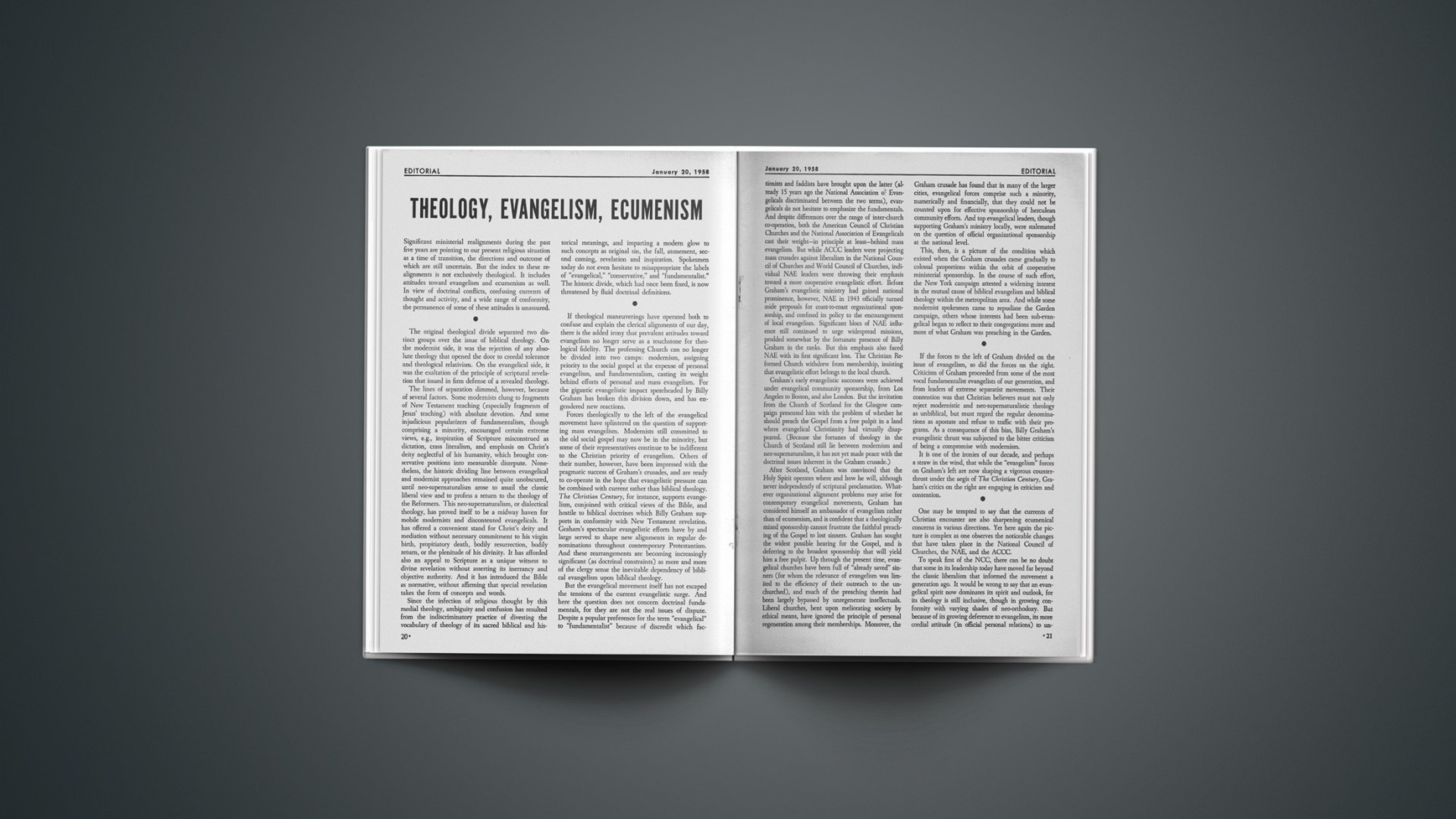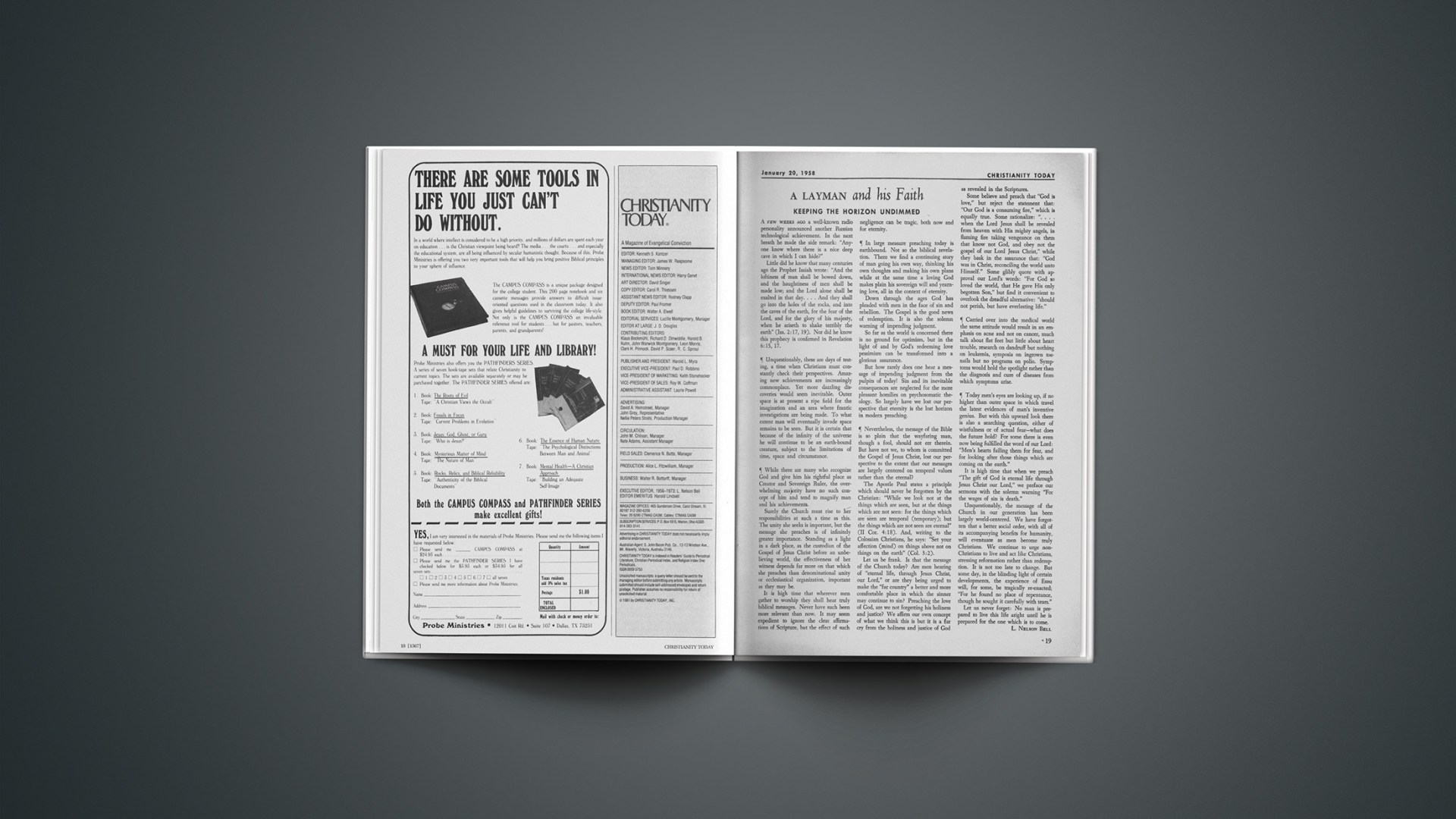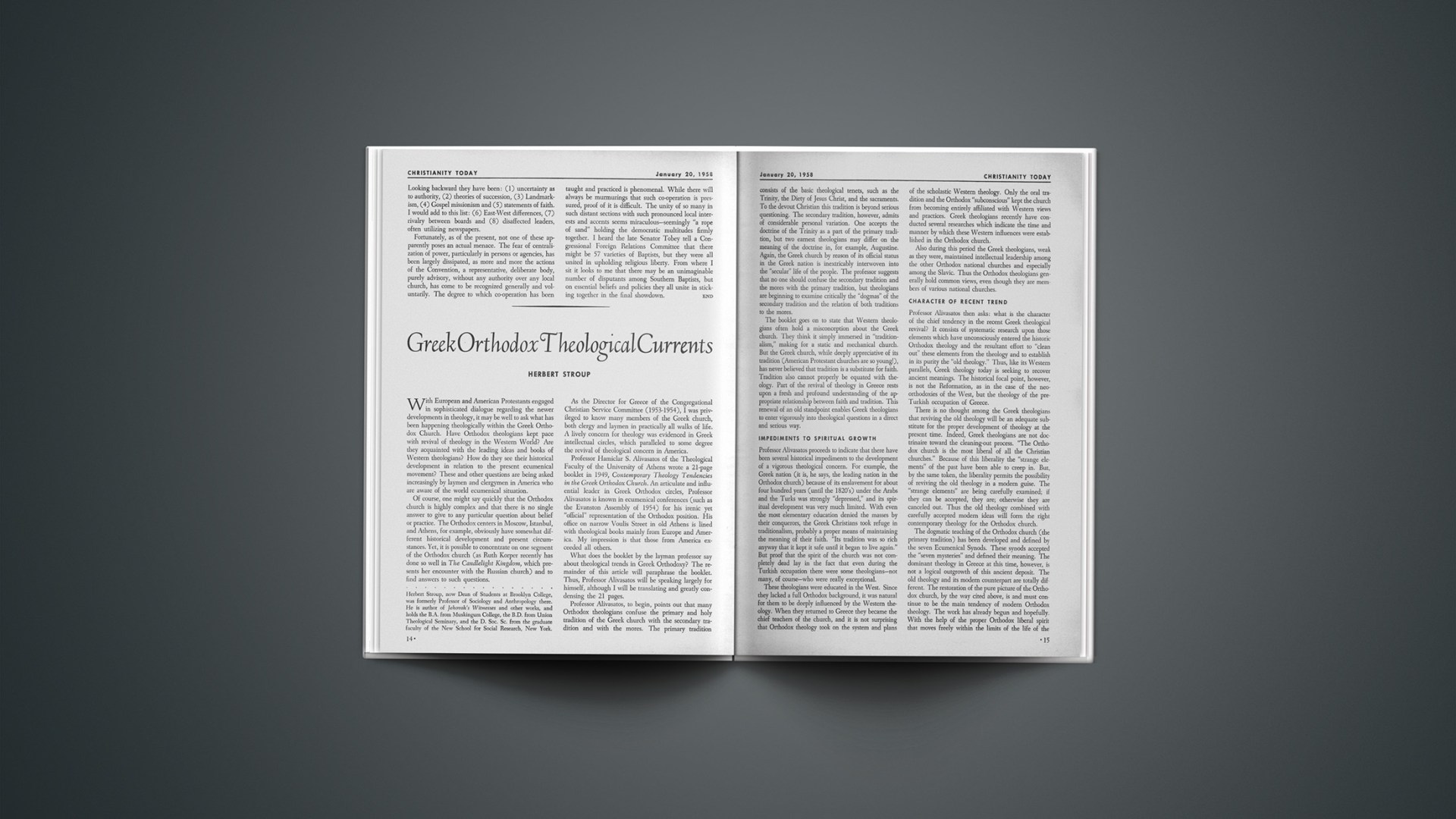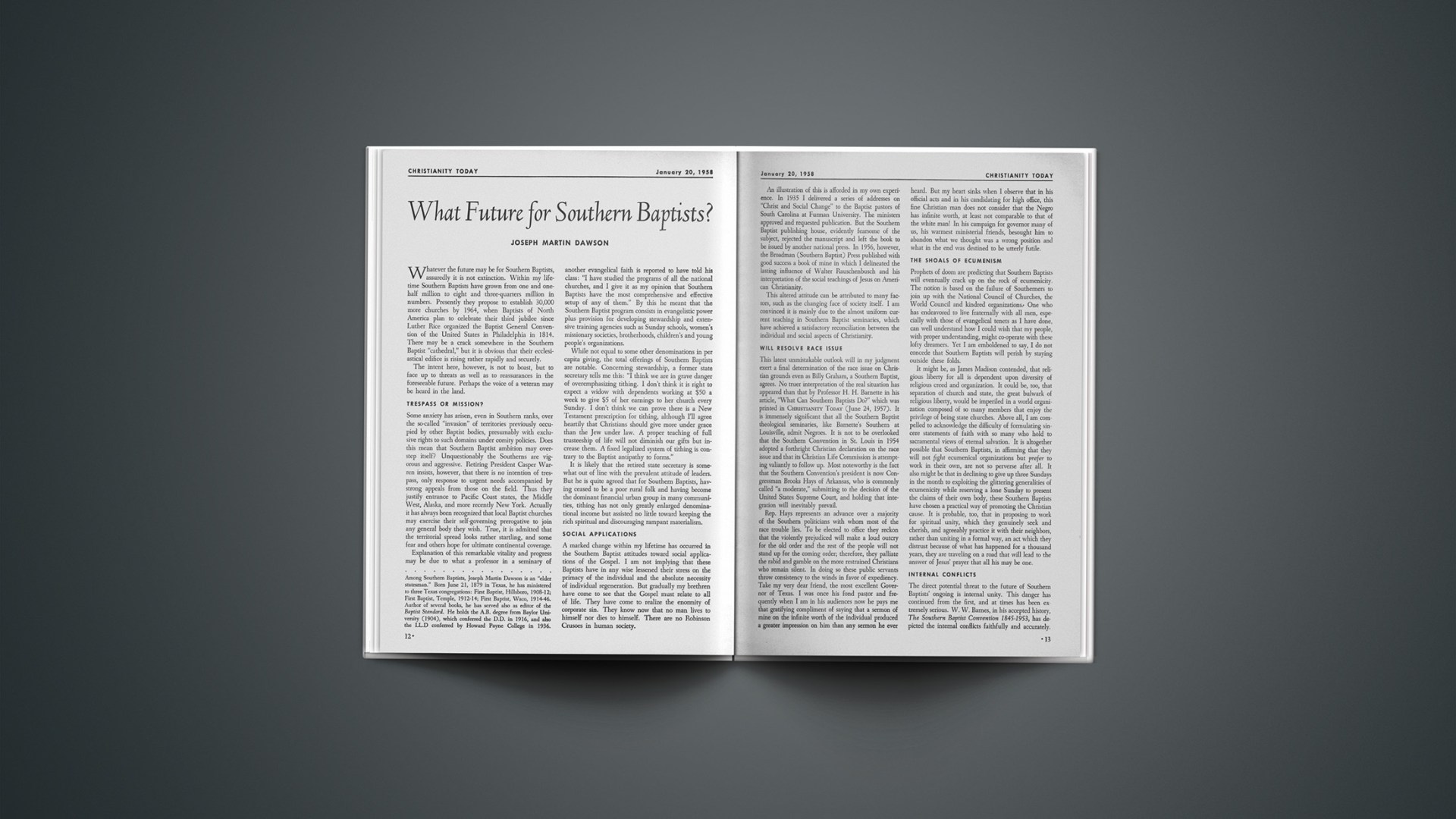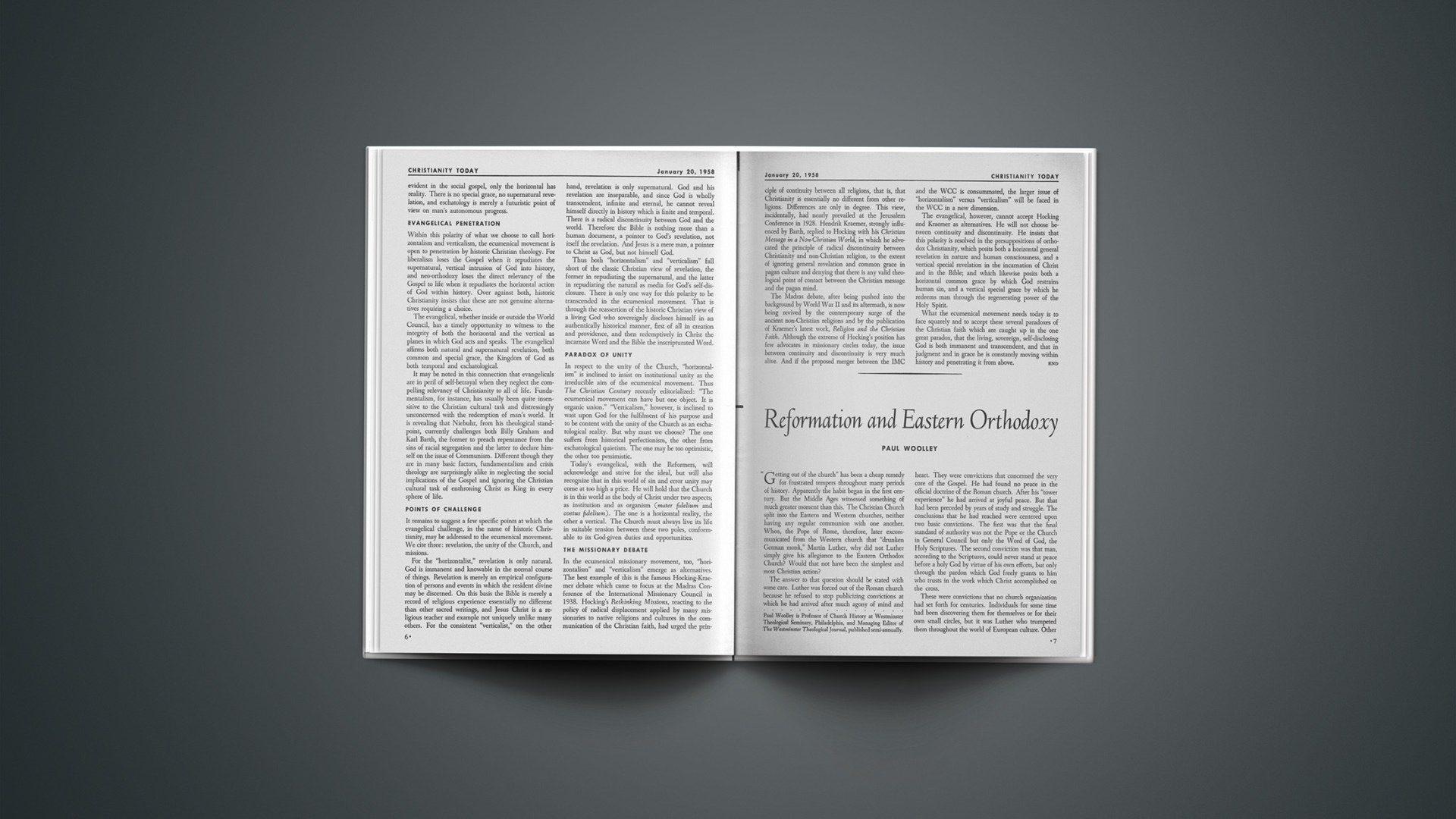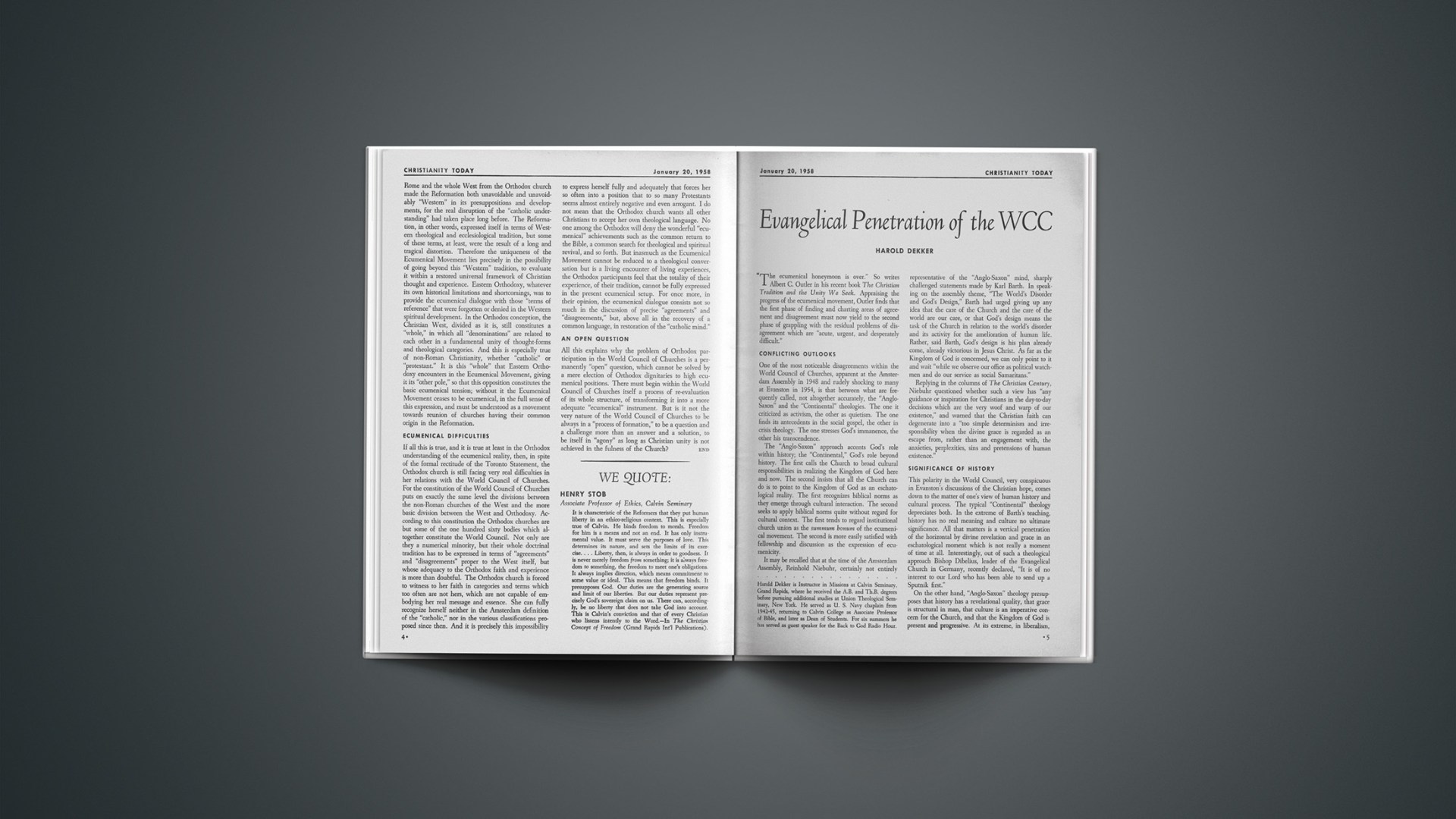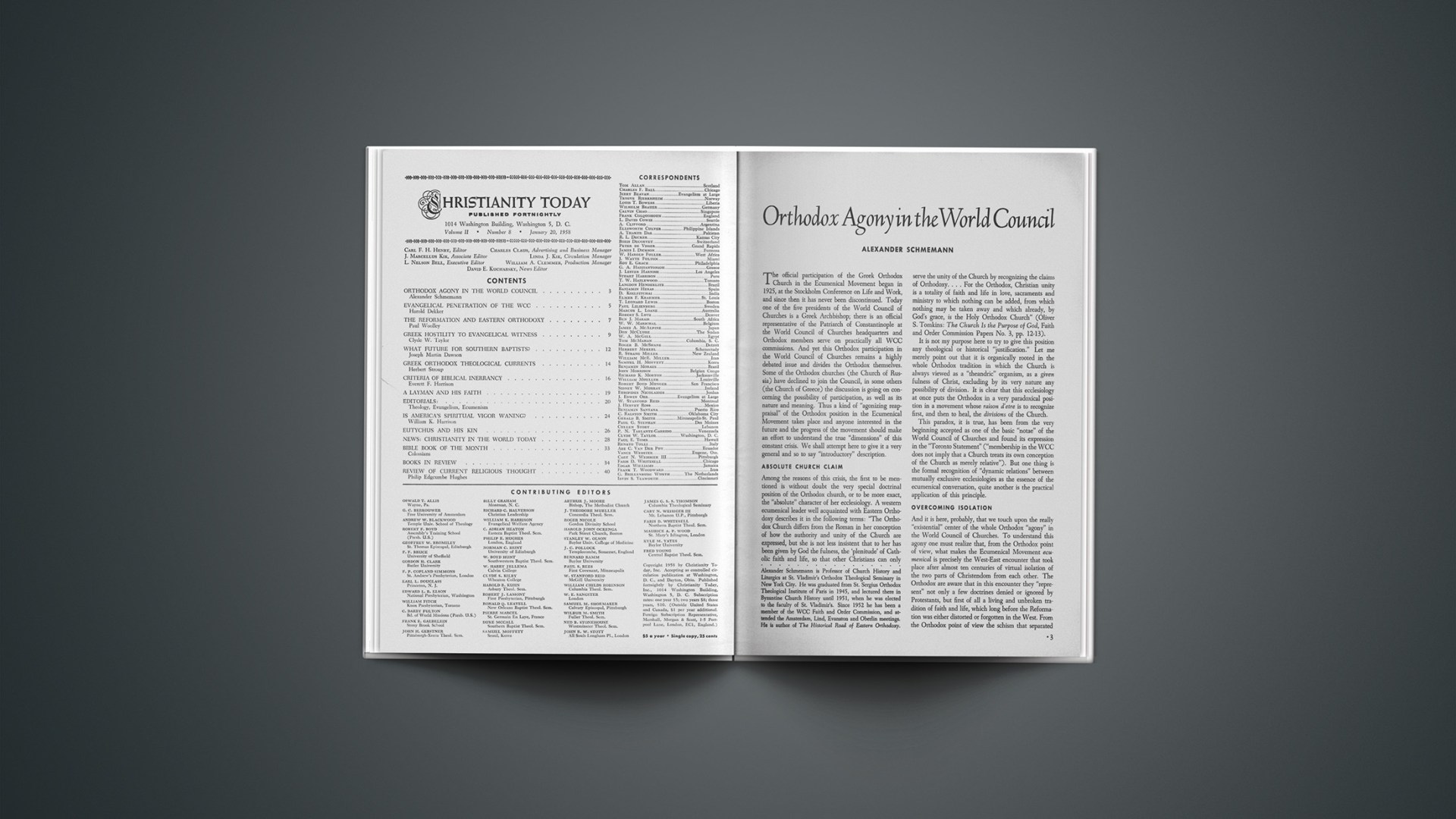It is difficult to see how the exhortation of the Bible, “Be ye doers of the Word and not hearers only, deceiving yourselves” (Jas. 1:22), could have a more necessary and emphatic meaning than it does today for Christians of the United States.
Too often we Christians appear to live as though we believe the very opposite of the biblical declaration that it is more blessed to give than to receive. Giving of oneself and of one’s possessions is the visible manifestation of love, the essence of the believer’s life in Christ. Yet in their demonstration of character many Christians and the church as a whole have no good reason to be satisfied. We cannot shrug off the criticism that those most vocal in defending the historic apostolic and biblical faith sometimes show little zeal in outworking that new life which the Lord has created in us.
Our Blessings
It is doubtful if ever in the history of the Church those born anew into the kingdom of God through faith in the Lord Jesus Christ have received so many visible, tangible blessings as have we in the United States. We have freedom to worship and to propagate the faith. In view of the historic hostility of the world toward that faith, this is no small blessing. We take our religious freedom for granted, but in many places believers must suffer for the name of Christ, some even dying a martyr’s death. Even in our own country many would deny us religious freedom if they had the power. Further, no other people have had so much material wealth and strength as have United States citizens, and Christians certainly possess their share. If we Christians in the United States really wanted to do those good works which God has ordained for us, we certainly could not say that he has failed to provide the means and the opportunity. Neither should we forget that “unto whomsoever much is given, of him shall be much required.”
An accounting appears necessary. There are four areas of recognized Christian activity which can enlighten us as to the failings of the Church today. These are: the defense of the faith, our local church life, foreign and home missions, help for the needy.
The Great Doctrines
It is probable that no true believer in the Lord Jesus Christ as Son of God and our Redeemer, fails to recognize the necessity of standing firm in the fundamental doctrines so clearly set forth in the one great source of spiritual truth, the Holy Bible. We can be thankful for those faithful and competent scholars, men of God, who have stood steadfast against the violent, skillful, subtle and often scornful assaults by unbelievers against the person and redeeming work of Christ and against the Scriptures. Yet is it not true that often we employ the same carnal argumentative methods as does the opposition? Are we not told to act in love? How can we ever hope to lead an unregenerate man to know the love of God in Christ unless some of that love is seen in us? Too often we act as though we were defending the faith because it is ours rather than because it is the truth of God. Regardless of the reason we accept certain things as true; once they are so accepted, they become a real element of our being. Then when such beliefs are attacked our personal pride is involved and it becomes most difficult to remain objective in our thinking. God’s truth is true because it is his, not ours. But if our ego becomes involved, then we use pride’s weapons and bitterness rather than conviction results. Even real believers in disputing among themselves about their differing interpretations of Scripture become enemies, thus by their words and actions giving the enemies of Christ an excuse for denying the reality of the new life in Christ.
Life In The Churches
Even in our local churches we find similar exhibitions of pride and covetousness, accompanied by bitterness, jealousies and divisions, the very things against which the Scriptures warn us. Further, who would deny that gross immoralities are sometimes found among those who have named the Name of Christ?
One demonstration of the selfish pride of Christians is seen in the amount of money spent on ourselves in the form of magnificent church and accessory buildings in contrast to the amount spent for the needs of others. No one would deny the desirability of having efficient, well built and attractive churches. We do not honor God by indifference to such features. Nevertheless, the churches are for us and our children. They are where we worship and receive the blessings of fellowship in Christian activities. Thus church edifices and appurtenances should not be the object and end of our Christian work, although they often appear to be so. Love being in us is to work outward to others. Too often the walls of the church seem to act as a great barrier shutting us away from those to whom we are Christ’s ambassadors.
We sometimes hear the remark that Christians will give more readily for a building, a church for example, than for missions or other good works. Why is this? Is it not because the treasure thus given returns to them as their own tangible possession, a treasure on earth rather than in heaven? Are we to suppose that a church building however efficient and beautiful can lead a soul to Christ? Can it not rather be a mausoleum for a faith without works.
Missionary Burden
This leads to the third area of discussion, missions. No Christian should ever forget that the Church is to give the Gospel of Christ, the Gospel of salvation from sin, to the entire race. Despite the clear commands of the Lord, the need of mission work and much talk about missions in our churches, are we really doing so well? In the light of the Lord’s command, what can we say of a church which with an annual budget of nearly $200,000 contributes the magnificent sum of $6,000 to missions? Or what shall we say when we hear of a major effort to evangelize a whole continent being curtailed because of a lack of money necessary to provide essential materials? Just how deep is our gratitude toward and love for Christ? The self-sacrifice of those multitudes of persons who are faithful missionaries or their generous supporters is a real example to us, but what can we say for the Church as a whole?
Care Of The Needy
Finally, there is the fourth area of Christian work, that of simple good works for the needy. Probably no one would question that this is the area in which there has been the greatest neglect. Our repugnance to the social gospel as a futile alternative to the only Gospel which can save and reconcile men to God, is no excuse for failing to seek out and help the needy. It would seem that in this field there is opportunity for evangelical Christians to unite. What does it mean when such work often falls short of what could be accomplished? Christians must face these responsibilities.
All of the areas discussed show serious shortcomings among people who rejoice in their faithfulness to Christ. What excuse can there be? Was there ever a time when the preaching of the Word was more widespread than now, and available to all? Was there ever a time when Christians had more freedom? Was there ever a time when Christians had more money to spend on new homes, vacations, television sets, automobiles, or other items for themselves, and to give to the Lord’s work if they would? If much is required of those to whom much is given, then surely the churches in the United States are falling short of their opportunities and gifts.
Need For Repentance
Unless there comes a real repentance we cannot expect other than a merciful chastizing at the hands of God. He is not mocked; as we sow so shall we reap. Can there be any doubt that today as never before there must be emphasized the immediate need of repentance by regenerated persons, individually and as churches? There is a need for soul-searching confession of sin, combined with a real committal of self, all of self, to the Lord Jesus Christ. If we do not obey his command then we must expect to reap the harvest of our own selfish indifference.
A distinguished Christian general now retired from his long military career in the U. S. Armed Forces, William K. Harrison serves as Executive Director of the Evangelical Welfare Agency which places orphaned children in Christian homes.
To One Who Walks Only On Boards And Wheels
Would He have bid you “Walk!”
Who have no legs?
Surely no quarter clacking hollowly
Upon an empty box
Would have proclaimed His passing,
Dusty of Galilee and just as much forsaken
As you seem.
Hardly would sympathy have shamed His face
Such as the momentary passers squirm to offer you.
What might He do
Who surely loves you as He passes by?
He might not stoop
To form new limbs
And smile you off
Running for new employ.
But He would speak comfort,
And peace and love, and inward joy.
Yet silent and unmoved
I pass you by
Who constantly exclaim,
“Lord, here am I.”
CHARLES WAUGAMAN

